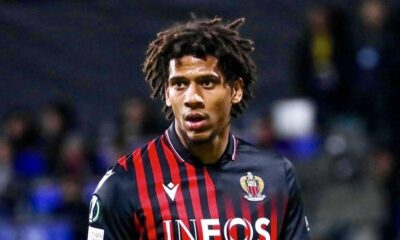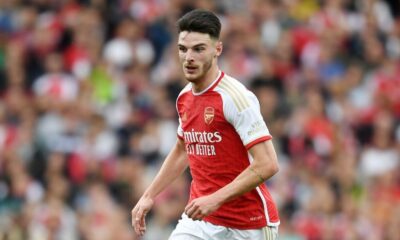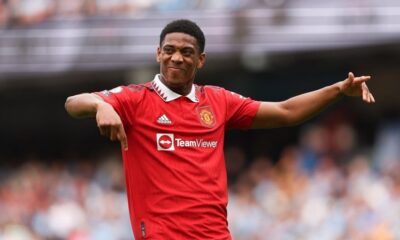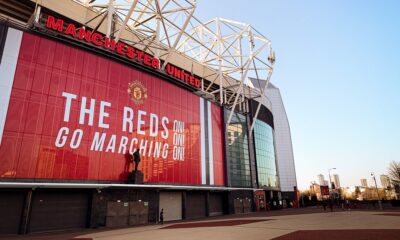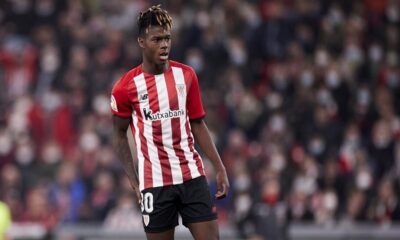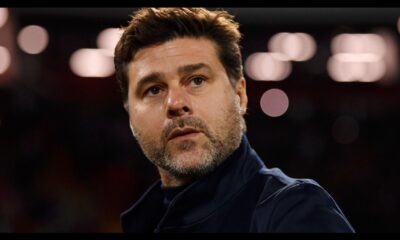Chelsea
Hiddink: As Good As You Think?
25th of May, 1988. PSV win their first, and to date only, European Cup, affirming their place as one of the three biggest teams in Dutch football. The architect of the success is fresh-faced 42 year old coach Guus Hiddink, in his first head management …
25th of May, 1988. PSV win their first, and to date only, European Cup, affirming their place as one of the three biggest teams in Dutch football. The architect of the success is fresh-faced 42 year old coach Guus Hiddink, in his first head management job.
6th of June, 2011. World class manager Guus Hiddink is strongly liked to return to the Chelsea job he helmed as a caretaker two years previously, this time in a full time role, as the Turkish FA, Hiddink’s employer, releases a statement indicating they are resigned to losing him.
Conventional wisdom has this down as a good move for Chelsea. They are still stinging from a relatively poor season under Carlo Ancelotti that saw a beatable Manchester United team comfortably win their record-breaking 19th league title and reach the Champions League final, despite Chelsea having an arguably superior team. And the last time Hiddink was boss, it yielded a tactical undoing of both Liverpool and Barcelona (although Barca controversially progressed on away goals, Chelsea were minutes away from a Champions League final before Iniesta’s classy last minute strike and looking good for it) in Europe and an FA Cup win domestically in just a few short months.
These triumphs don’t look out of place on Hiddink’s muscular CV. Add to them two World Cup semi finals, one with South Korea, a European Championship semi final with Russia, and the distinction of being the most successful manager in domestic Dutch history, and you’ll begin to wonder at the provocative title of this article.
Yet it is my contention that, should his appointment as Chelsea boss be confirmed, it is a potential pitfall for both the man and the club. Hiddink, for all his success, has often relied on two things: his ability to spot a squad’s short-term potential, and no little degree of good fortune.
The mighty PSV team of 1988 was the blueprint for this, in many ways. The inexperienced Hiddink was first and foremost somewhat lucky to graduate into the role from the position of assistant to his predecessor, especially when five of the players to play in the final would go on to win Euro 88 under the legendary Rinus Michels. Secondly, PSV actually didn’t win a game from the quarter finals onwards: they defeated Bordeaux and Real Madrid on away goals, drawing all four matches, and Benfica, who have lost more finals than any other club, on penalties.
Following this, he lasted a season before being sacked at Fenerbahçe, and while he managed to get Valencia to punch above their weight in the face of Cruyff’s Barcelona’s dominance, it wouldn’t be until 1995 that he ascended to the cream of football once more, taking charge of the Dutch national team.
While the Netherlands is never an easy job, with its high expectations and inevitable neuroticism, his tenure was not the unqualified success it has since been painted as. He failed to overcome the (partially racial) tensions between players in the 1996 European Championships, with defender Arthur Numan commenting that he was pleased when Holland were knocked out because it was preferable to spending another few days in that particular dressing room atmosphere (This tournament also included an ignominious 4-1 defeat to the hosts, Terry Venables’ England).
In 1998, he did unite his players, and coached them to the semi final of the World Cup. However, while losing to Brazil on penalties might sound respectable, they needed an unreproducible moment of brilliance from Denis Bergkamp against Argentina to get that far. Prior to this, they failed to defeat Mexico, who were almost solely reliant on Blanco, and a Belgium team who had been unable to replace their ageing USA 1994 players.
The next few years have all been erased from the fawning press coverage of Hiddink that seems to follow him like a bad smell (hype that, in fairness to him, he has never bought into or courted, always giving credit elsewhere when it’s due). He lasted less than a year before being sacked as manager of Real Madrid, and didn’t do any better at Real Betis, being dismissed in May 2000.
His feats with South Korea are doubtless impressive on face value, but difficult to assess fairly, as his team were assisted by some of the most dreadful and, most likely, corrupt officiating ever seen at that level. And though he would go on to surpass Rinus Michels’ domestic Dutch trophy haul when he returned to PSV, Michels achieved his when the Dutch league was one of the best in the world; by the mid 2000s, it was second tier.
Hiddink did a fine job as head coach of the Australian national team, but this is more indicative of his good timing and aforementioned skill at assessing a squad’s potential than anything. Considering how many of his personnel were involved in the English leagues, this should have been him overseeing Australia’s transition from nothing nation to a difficult dark horse team expected to qualify for big competitions. And so it proved; but this is the exception of Hiddink’s career rather than the rule in that it is the only time he has left a legacy behind him (and even then, Australia have failed to live up to their billing and make any significant impression on the world stage in the half a decade or more following his last match, a second round loss to a ten man Italian team). Unlike, say, Cruyff or Michels, he does not build teams or mentalities that last, and until he does, he will never be able to count himself among the dynastic rulers he is often named as equal to.
Russia didn’t even retain his ambitious reworking of their way of play through to the end of his tenure. A reworking, by the way, that is as much the work of Dick Advocaat at Zenit St Petersberg as Hiddink; in tandem, they introduced the flowing pass-and-move game that had been missing from the nation since the fall of the Soviet Union. Indeed, it must be said, Russia only really sparkled in the Euro 2008 tournament itself – they looked extremely limited in both qualifying campaigns under Hiddink – and even that is only remembered as fondly as it is for the exciting counter-attacking demolition of a largely rudderless Holland under Marco Van Basten, a manager who is, to put it politely, not in Hiddink’s league. When Russia played a team with class and leadership to go along with it, onlookers were left in no doubt they had, in fact, not reached the heights the Soviets enjoyed under Valeriy Lobanovskyi two decades earlier.
Yes, he is a shrewd tactician (you don’t get the better of Rafa Benitez in European competition otherwise) and a fine motivator, and should be praised for these attributes. Indeed, it is, if anything, strange that he hasn’t won more. That he hasn’t is due to the same reason he won’t be able to mould a club in his image like the greatest managers do: like Jose Mourinho and Bela Guttmann, he is a wanderer. Unlike Hiddink, however, Mourinho and Guttmann both became two-time European Cup winners (and Guttmann is still recognised today as one of the pioneers of the 4-2-4 system), and while he has semi-finaled with PSV and Chelsea, his freshman trophy remains his greatest moment and one he is unlikely to replicate over 20 years later.
The Chelsea squad he could inherit is ageing, and the club are on financially unsure ground. Roman Abramovich has limited himself to one big signing a year in recent times, and the new regulation laws make it doubly unclear where the London club stand. On the pitch, they are lacking in width and pace, and the even the likes of John Terry, Frank Lampard, Didier Drogba and Michael Essien (who was largely responsible for some of Hiddink’s finest moments last time he was at Chelsea, making Steven Gerrard look ordinary and matching the Xavi/Iniesta combo almost single-handedly) have had average-to-poor seasons and aren’t getting any younger. Furthermore, it is no secret Abramovich’s ambition is the Champions League, and he has just gotten rid of a manager with far more success in this area than Hiddink. Ancelotti is another two-time winner, and was a losing finalist in 2005, which is why a record-breaking league and cup double in his first season in the Premier League was not enough to save him after two years of quarter final exits in Europe.
More than his underdog roles, this will be Hiddink’s greatest challenge if he takes the job. He is flaunting the “never go back” rule for the second time in his career (he is still fondly remembered by the players, fans and owner at Chelsea) to take on a near-impossible task for a thankless boss. This for a man who has more often than not shunned the big “Hollywood” appointments since his failure at Madrid and preferred low-pressure, low-expectation assignments. He is best advised leaving well enough alone. Meanwhile, expect Chelsea to remain in their perpetual Catch 22: no stability with Abramovich, no cash without him.
Submitted by Football Friends


